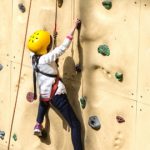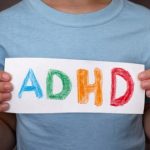
In a brain scan, relational pain – that caused by isolation during punishment – can look the same as physical abuse. Is alone in the corner the best place for your child?
Time-out is the most popular discipline technique used by parents and the one most often recommended by pediatricians and child development experts. But is it good for kids? Is it effective? Not according to the implications of the latest research on relationships and the developing brain.
Studies in neuroplasticity – the brain’s adaptability – have proved that repeated experiences actually change the physical structure of the brain. Since discipline-related interactions between children and caregivers comprise a large amount of childhood experiences, it becomes vital that parents thoughtfully consider how they respond when kids misbehave. Discipline is about teaching – not about punishment – and finding ways to teach children appropriate behavior is essential for healthy development.
So what about time-outs? In most cases, the primary experience a time-out offers a child is isolation. Even when presented in a patient and loving manner, time-outs teach them that when they make a mistake, or when they are having a hard time, they will be forced to be by themselves-a lesson that is often experienced, particularly by young children, as rejection. Further, it communicates to kids, “I’m only interested in being with you and being there for you when you’ve got it all together.”
The problem is, children have a profound need for connection. Decades of research in attachment demonstrate that particularly in times of distress, we need to be near and be soothed by the people who care for us. But when children lose emotional control, parents often put them in their room or by themselves in the “naughty chair,” meaning that in this moment of emotional distress they have to suffer alone.
When children are overtaxed emotionally, they sometimes misbehave; their intense emotions and the demands of the situation trump their internal resources. The expression of a need or a big feeling therefore results in aggressive, disrespectful, or uncooperative behavior-which is simply proof that children haven’t built certain self-regulation skills yet. Misbehavior is often a cry for help calming down, and a bid for connection.
When the parental response is to isolate the child, an instinctual psychological need of the child goes unmet. In fact, brain imaging shows that the experience of relational pain-like that caused by rejection-looks very similar to the experience of physical pain in terms of brain activity.
On top of everything, time-outs are usually ineffective in accomplishing the goals of discipline: to change behavior and build skills. Parents may think that time-outs cause children to calm down and reflect on their behavior. But instead, time-outs frequently make children angrier and more dysregulated, leaving them even less able to control themselves or think about what they’ve done, and more focused on how mean their parents are to have punished them.
When children concentrate on their horrible luck to have such a mean, unfair mom or dad, they miss out on an opportunity to build insight, empathy, and problem-solving skills. Putting them in time-out deprives them of an opportunity to build skills that other types of discipline could focus on. Setting clear limits while emphasizing collaboration, conversation, and respect gives kids a chance to practice being active, empathic decision makers who are empowered to figure things out on their own.
Next time the need for discipline arises, parents might consider a “time-in”: forging a loving connection, such as sitting with the child and talking or comforting. Some time to calm down can be extremely valuable for children, teaching them how to pause and reflect on their behavior. Especially for younger children, such reflection is created in relationship, not in isolation. And all of this will make parenting a whole lot more effective and rewarding in the long run.
This article is by Daniel J. Siegel and Tina Payne Brysone.
The above article was selected by Bibi Shah, Developmental Psychologist at TDCC. Here she shares some views and provides her top five STOP & THINK tips.
As parents it’s easy to lose sight of what purpose discipline serves when it comes to child development. We want our children to learn rules, right from wrong and to respect and care for others. In trying to instill these values, we sometimes forget that discipline is about teaching not punishment. My own experience with time-outs has been, well- no experience at all. Even before this study linking time-outs to isolation and rejection- came to light, I was never able to justify how a withdrawal of love technique (time-out) could possibly bring me closer my child. Research has shown that a parenting style that is firm but warm and that uses a relational style of discipline results in children who actually internalize rules better.
Stop and Think…Before you discipline. 5 tips
- Is your discipline strategy working? Could it be having any long-term negative effects on your child? Does it make your child even angrier or unsettle them? If so-when you discipline- use consequences instead of time-out.
- Use a strategy that is more relational: For older children this means having a conversation that discuses emotions and how others feel (how the child’s behavior make others feel) and for younger children, use non-verbal techniques such as holding or sitting together.
- Nurture your child’s need for belonging and connection. Show them you love them even when they’ve misbehaved and that their behavior does not define them (you dislike the behavior but not them). You are in effect- modeling unconditional love.
- Share personal experiences and feelings with your child. Tell them that even mommies and daddies get upset, angry or sad and that it’s ok to feel that way. Children pick up on your emotions so stay calm!
- Never use any type of discipline that involves power assertion such as yelling, ignoring or hitting. Not only is this ineffective but it can cause long-term emotional problems.









